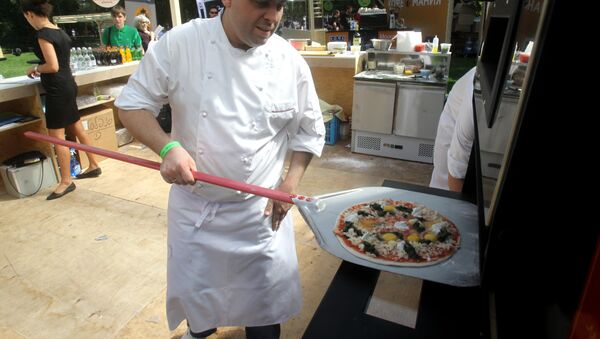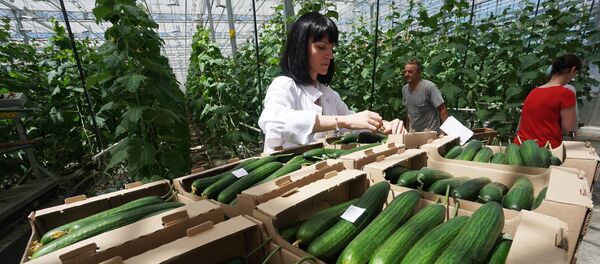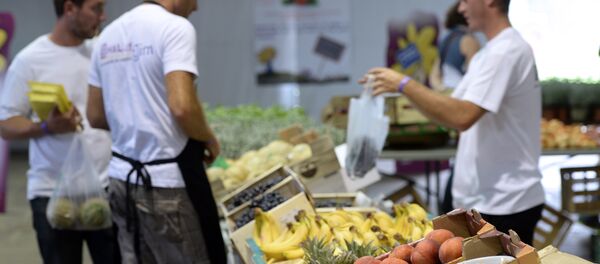A restaurant serving all domestic-produced foods opened in central Moscow. According to the author, the reason behind the move was not patriotism but the growing popularity and credibility of Russian agricultural producers. The restaurant is especially known for serving only Russian-made wine and beer.
Russian wine made a name for itself after spring 2006, when Russia banned imports of Georgian wines. Since then, the quality of Russian-made wines has greatly improved. In 2013, the ban was lifted but by that time Russian wines became popular for their "great quality for great price."
The popular Black Sea resort of Anapa as well as the entire Krasnodarsky Territory have turned into the Russia’s largest wine-producing region. Someone driving across the region can easily confuse it with Europe, the article read. The wine-producing industry in the region has been modernized, with some manufacturers even hiring specialists from France.
Wines are not on the list of Western sanctions against Russia, but Russian people have once again turned to domestic-made products.
"In Russia, public preferences are often dictated by the government, a peculiar phenomenon which can hardly be seen in other countries. Nevertheless as a result, the quality of Russian-made foods is getting better," the author wrote.
He also brought up Russian craft beer, including those brewed in Moscow, Krasnodar, and Yekaterinburg etc. At that "patriotic" restaurant the price tag of a bottle of Russian craft beer is about 500 rubles ($6.5) which can be considered high. But it is worth it, Sugavara wrote.
This is not to say that the craft beer and wine boom in Russia stems from the sanctions, but the fact that the patriotic trend is increasing in Russian restaurant culture is very nice to witness, according to the article.
The food embargo imposed in 2014 included American beef which was most popular in Russian steakhouses. It was quickly replaced with Australian and South American beef, but it had a different taste. And only Russian Black Angus beef could save the situation, according to the author.
What is more, amid the sanctions, the Russian fishing industry has been avidly developing production of caviar, mostly in the country’s Far East region, the article read. Fishing companies have built factories in the Kuril Islands, in the Sakhalin Region and its neighboring areas. They adopted Japanese production technologies. Now, they produce high-quality caviar and send it to the European part of the country by plane.




